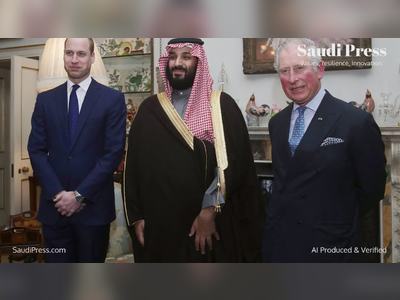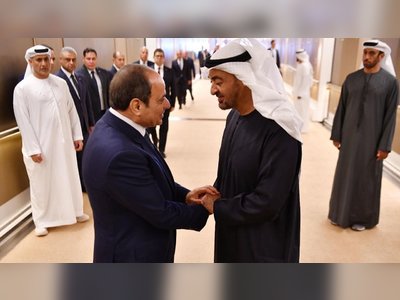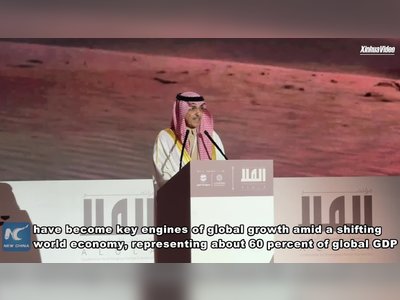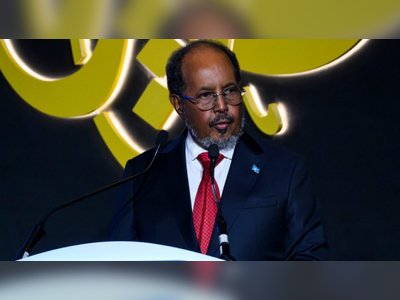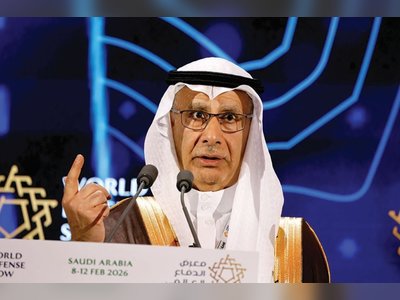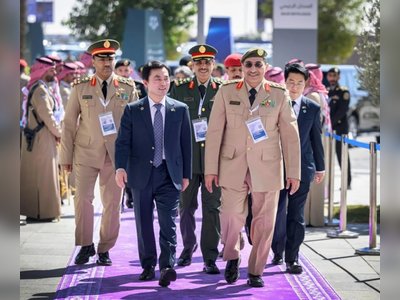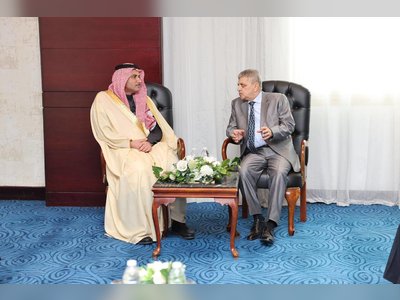Drones Cut Carbon Emissions by 66% at Saudi Nature Reserve; Key Regional Developments in Health, Security, and Trade
Drones reduce carbon emissions by 66% at Saudi nature reserve.
At the Imam Turki bin Abdullah Royal Nature Reserve in Saudi Arabia, the introduction of drones has led to a remarkable 66% reduction in carbon emissions. This initiative has not only decreased reliance on fossil fuels but also significantly boosted vegetation cover and improved environmental monitoring, aligning well with the Saudi Green Initiative's goals.
Meanwhile, in another stride towards better health and safety, the Saudi Ministry of Health fined three airlines for failing to properly spray their aircraft with insecticides at Madinah's Prince Mohammad bin Abdulaziz International Airport. This action underscores the ministry’s commitment to health surveillance and public safety at entry points.
On the topic of global cooperation and unity, Dr. Mohammed bin Abdulkarim Al-Issa, Secretary-General of the Muslim World League, gave a thought-provoking lecture at Harvard Law School. Addressing law, religion, and societal unity, Al-Issa highlighted the MWL's initiatives like the Charter of Makkah, aimed at bridging Islamic sects and enhancing community cohesion.
Turning to the Middle East, tensions have escalated as an Israeli strike in Beirut resulted in the death of Hezbollah leader Hassan Nasrallah and more than 20 high-ranking members. This development marks a significant shift in the region’s dynamics, following nearly a year of low-level cross-border fire and Hezbollah's recent actions in support of Hamas.
Amidst these turbulent times, Saudi Arabia’s Fourth Milling Co. is looking forward to growth and innovation following its highly successful IPO. CEO Khalid Al-Maktary announced plans to expand production and operational efficiency, strengthening the company's contribution to the country's Vision 2030 food security goals.
Lastly, in Qatar, the private sector has reported a 3.5% rise in exports during Q2 2024, largely driven by varied performances across certificate-of-origin models. Notably, exports to Asian countries, particularly India, played a significant role, reflecting Qatar's robust trade dynamics within the Gulf Cooperation Council framework.
Meanwhile, in another stride towards better health and safety, the Saudi Ministry of Health fined three airlines for failing to properly spray their aircraft with insecticides at Madinah's Prince Mohammad bin Abdulaziz International Airport. This action underscores the ministry’s commitment to health surveillance and public safety at entry points.
On the topic of global cooperation and unity, Dr. Mohammed bin Abdulkarim Al-Issa, Secretary-General of the Muslim World League, gave a thought-provoking lecture at Harvard Law School. Addressing law, religion, and societal unity, Al-Issa highlighted the MWL's initiatives like the Charter of Makkah, aimed at bridging Islamic sects and enhancing community cohesion.
Turning to the Middle East, tensions have escalated as an Israeli strike in Beirut resulted in the death of Hezbollah leader Hassan Nasrallah and more than 20 high-ranking members. This development marks a significant shift in the region’s dynamics, following nearly a year of low-level cross-border fire and Hezbollah's recent actions in support of Hamas.
Amidst these turbulent times, Saudi Arabia’s Fourth Milling Co. is looking forward to growth and innovation following its highly successful IPO. CEO Khalid Al-Maktary announced plans to expand production and operational efficiency, strengthening the company's contribution to the country's Vision 2030 food security goals.
Lastly, in Qatar, the private sector has reported a 3.5% rise in exports during Q2 2024, largely driven by varied performances across certificate-of-origin models. Notably, exports to Asian countries, particularly India, played a significant role, reflecting Qatar's robust trade dynamics within the Gulf Cooperation Council framework.
